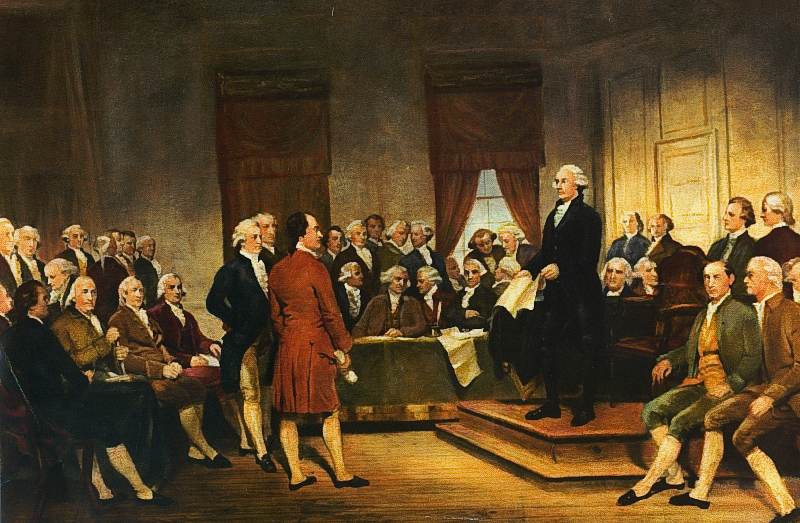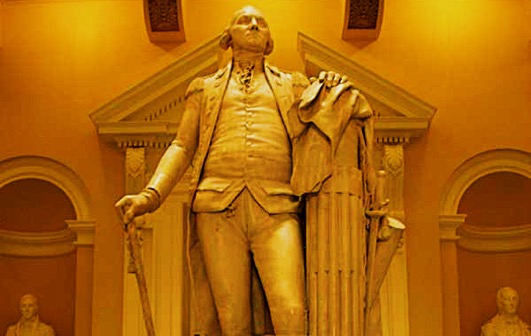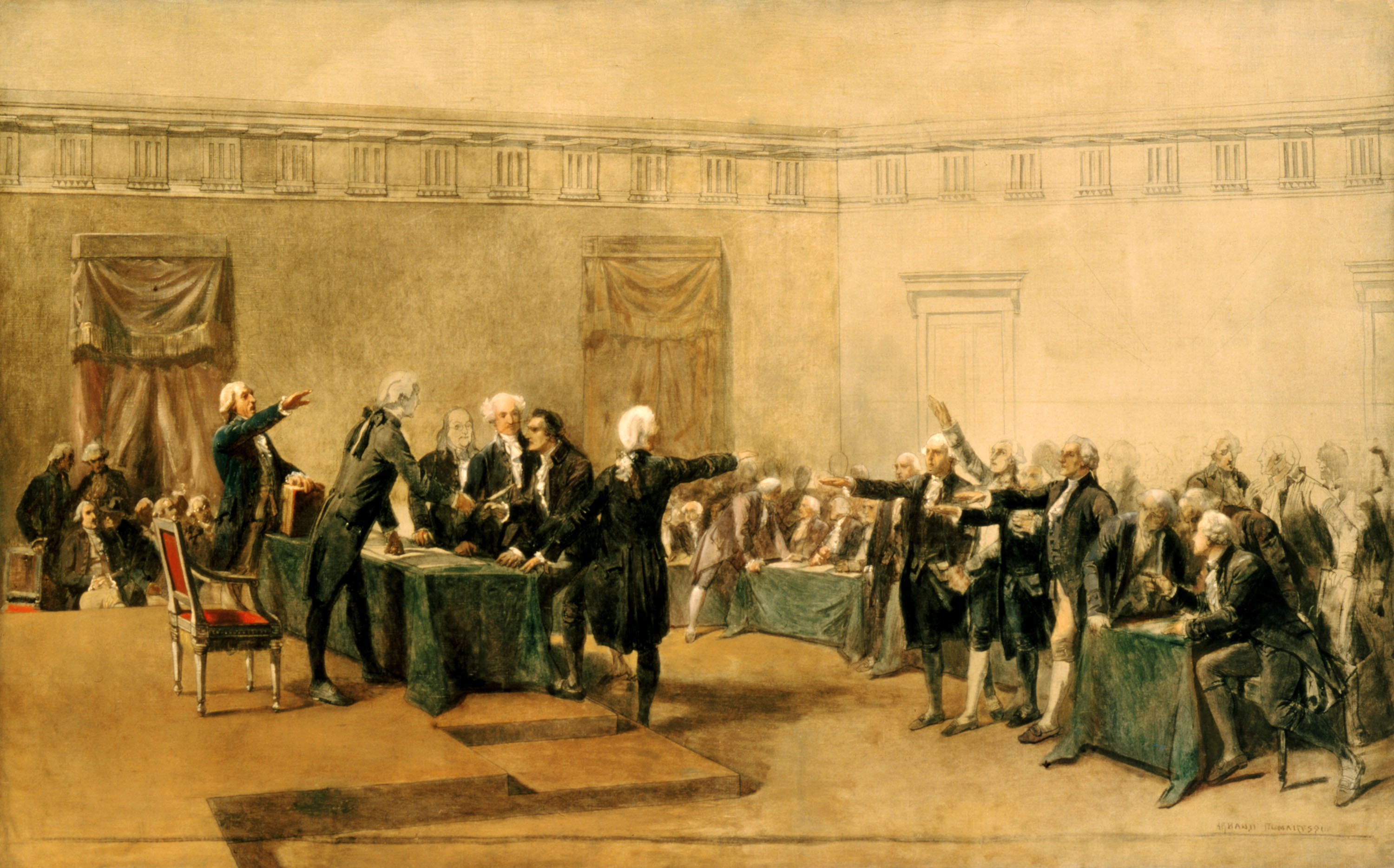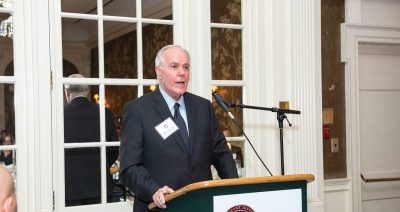Root, root, root for the electors. If they don't win it's a shame.
Free Speech Sense and Sensibility

The moral limits of our constitutional order.
It is precious to see so many college administrators, deans, and presidents now honing “principled,” absolutist commitments to freedom of speech on their campuses. When campuses were hosting Dennis Prager, Charles Murray, Charlie Kirk, or Riley Gaines, or even federal appellate court judges, the messages that used to ban or chase them off campus were “hate has no home here” or “the juice is not worth the squeeze.” Defamatory characterizations on the part of biased third parties such as the SPLC against these speakers as “white nationalists”—or worse—were used as evidence that they should not be protected. “Hate speech is not protected speech” became the bray of leftist academics and legislators across the whole country.
To anyone even marginally familiar with First Amendment doctrine, “hate speech” has long been held to be constitutionally protected speech, because, in the absence of a direct and specific threat of violence, it has no easily defined and applicable legal standard. Legally speaking, hate speech does not exist.
The problem with the leftist censors’ position, as most Americans used to understand, is that one man’s legitimate policy perspective voiced in an open and democratic society cannot form the basis for another’s demand to be protected from it. Open debate on political concerns should not constitute a transubstantiation of words into violence, thus rendering them subject to censorship. Nevertheless, college presidents, administrators, and deans have had no problem washing their hands of the shutting down of speakers whose positions offended delicate leftist sensibilities.
Not anymore, it seems. Since the Hamas pogrom on October 7, American campuses have been rife with the kind of evil that is not merely emblematic of heated policy debate, but is instead straight out of 1930s-era Germany. What are euphemistically identified as “pro-Palestinian protests” are effectively calls for violence against the Jewish people. Celebratory imagery of Stars of David in trash cans with phrases like “Glory to our martyrs” and “From the river to the sea, Palestine shall be free” are overt calls to sectarian violence. “From the river to the sea, Palestine shall be free” is, in fact, the only explicit call to genocide that receives tolerance and even respect in polite society today.
The United States in the year 2023 has a perverted understanding of freedom of speech. Joe Biden said the impetus for his run for president was his abhorrence of the “United the Right” rally in Charlottesville in 2017. Whence came the idea that neo-Nazis had the “right” to march in Charlottesville in 2017? Perhaps it came from the misbegotten notion their spiritual forebears had the unambiguous moral or legal “right” to march in Skokie, Illinois in the late 1970s. The ardent relativism that has surrounded such assertions of free speech “rights” is a surrender to what the First Amendment was never meant to protect—vile statements wholly untethered from the pursuit of truth, which was the original impetus for legally protected freedom of speech in the first place. This relativism, adopted by liberals of both parties, is a capitulation to the notion that everything in the “marketplace of ideas” has equivalent inherent value.
A sounder view, one explicated by Justice Samuel Alito in his courageous solo dissenting opinions in both United States v. Stevens (2009) and Snyder v. Phelps (2011), is one less grounded in the idiosyncratic and self-satisfied words of an individual provocateur, and more grounded in the telos of a free speech regime that has existed since the Academy of ancient Greece: the pursuit of truth. When purported contributions to the public discourse exceed substantive dissident speech and become unmoored from anything remotely smacking of the pursuit of truth, they are liable to be treated as something less than fully speech qua speech for either moral or legal (e.g., tort or criminal law) purposes.
Calls from jihad sympathizers to exterminate the Jews of Israel—or, for that matter, to gas the Jews anywhere they can be found the world over—certainly fit into this category.
As Justice Alito explained in his Stevens and Snyder dissents, the First Amendment was meant to protect a vast array of thoughts and beliefs, but they are thoughts and beliefs to be offered in a “marketplace of ideas” dedicated to perpetuating and securing certain ends of governance—such as the “Blessings of Liberty” and a “Republican Form of Government” that the Constitution’s Preamble invokes. The First Amendment was not meant to protect anything or everything—and certainly not as a suicide pact allowing for the perfectly equal moral or legal claims of, say, a Joe Biden and a Donald Trump on the one hand, and an Ali Khamenei and a Hassan Nasrallah on the other hand. The Constitution was never meant to yield to a liberal “marketplace” of fascism, communism, or Islamism—or explicit calls to racial or ethnic mass murder.
Our Founders were not moral or political relativists. They saw our Constitution as necessary not merely to tolerate, but to affirmatively secure substantive justice. As scholars such as Hadley Arkes, Walter Berns, and others have explained, the Constitution, which was designed to protect particular ends, was not designed, and could not have been designed, to stand for an equality of every possible political outcome—especially one that might ultimately supplant the very republican form of government that the Constitution itself mandates.
Today, in a perverse twist, political speech that debates the best opinions about how we govern ourselves with regard to political contentions that have been with us since time immemorial has been censored on college campuses. When it comes to the war in Israel and Gaza, Americans living under our Constitution might disagree on the merits of a U.S.-prodded ceasefire, whether Hamas-supporting foreign students ought to have their visas revoked, or any number of other public policy issues. But bloodthirsty marches on behalf of genocide must not be confused with morally or legally legitimate “free speech” under our moralistic constitutional order. Our regime recognizes these not as differences in the “degree” of would-be speech, but in the kind of speech.
Such a misunderstanding of our commitments to freedom, speech, and plain decency have led us to this ironic pass. Debates about men being allowed to use women’s locker rooms or arguments about meritocracy are intolerable; marches including incantations to genocide, by contrast, are considered sacred.
The American Mind presents a range of perspectives. Views are writers’ own and do not necessarily represent those of The Claremont Institute.
The American Mind is a publication of the Claremont Institute, a non-profit 501(c)(3) organization, dedicated to restoring the principles of the American Founding to their rightful, preeminent authority in our national life. Interested in supporting our work? Gifts to the Claremont Institute are tax-deductible.
Remarks accepting the Claremont Institute’s Henry Salvatori Prize in the American Founding, Washington, D.C., October 27, 2018.
We don’t need a revolution to find political redemption.






